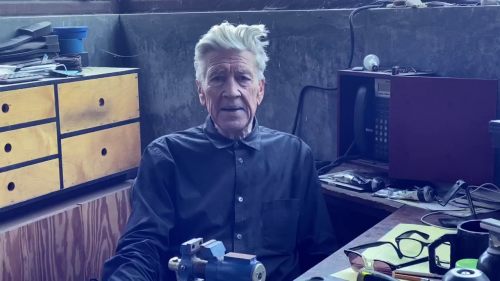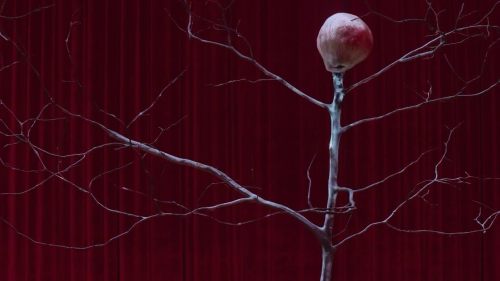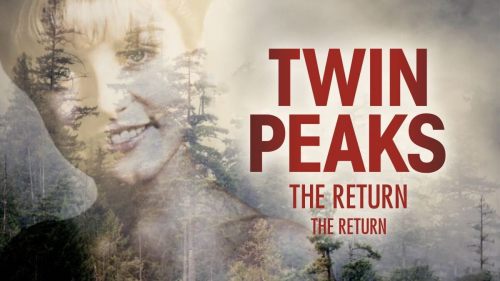TWIN PEAKS: Did Kyle MacLachlan Just Spoil Dougie Jones’ Ultimate Fate?
At this point, it’s hard not to obsess over every little detail about Twin Peaks: The Return. David Lynch and Mark Frost kept us all in the dark during production, curating a near unprecedented level of access denial; a truly admirable feat in an era defined by the corporate construction of artificial anticipation. Where most modern works of television and film come with teasers, trailers, teasers for teasers and trailers, set visits, multiple character posters, mid- and post-credit stingers for the future installments, The Return doesn’t even give us “previously on” or “coming next week” bumpers. Hell, the Part descriptions come close to straight up trolling, tossing out decontextualized snippets of dialogue like hyper-vague title cards in The Wire. Part Eight of Lynch and Frost’s eighteen-hour opus may be the best example of this, as the surrealist work of experimental cinema was simply defined with two words that became a horrifying death rattle during the psychedelic riff through atomic time and space: “gotta light?”
So, when Kyle MacLachlan talks to the Hollywood Reporter and kinda, sorta lets slip the ultimate fate of his mentally comatose Dale Cooper surrogate, Dougie Jones, it feels like a big deal. MacLachlan (in trademark handsomely affable fashion) spoke lovingly about longtime collaborator David Lynch (whom he hadn’t worked with since their minor falling out during the original Twin Peaks run and Fire Walk With Me), stating “everything will make sense”:
“I think we all knew it was going to be a challenging journey for the audience, simply because it is 18 parts of one giant piece, and it's sequential, so people really have to stay with it. And also that David's storytelling is filled with imagery and different perspectives and characters and things that may initially be confusing to people, but ultimately everything will come back together and make sense. It will be clear.”
But when it came time to discuss Dougie, MacLachlan went into detail, confirming certain thematic theories some fans hold regarding Cooper’s post-Black Lodge body, and how the man in the oversized green sport jacket may be purposefully unmemorable, until the Special Agent became trapped in this bizarre take on The Talking Heads’ “Once in a Lifetime”:
“The idea that he went from that one character who we saw briefly, to someone who resembles Cooper a little bit more ... I knew it was going to be tricky. But I knew it wasn't up to me. It's going to be up to the people around me to make that work. The character of Jade [Nafessa Williams], the character of Janey-E and the people at work — they were all going to have to look at him and go, ‘Why has he changed? What's happening here?’ As an audience, we have to go with that. I knew it was going to be a bit of a challenge. But it's also a reflection on Dougie from before. He probably wasn't that memorable, either. People probably didn't look at him too closely: ‘Oh, it's you. You look a little different. Did you change your hair or something?’”
Wait a minute. That first sentence is a subtle bombshell. The idea that he went from that one character who we saw briefly, to someone who resembles Cooper a little bit more. So, what you’re possibly saying Kyle, is that we will eventually get to hang out with the old Coop as he hunts down his deadly doppelganger? While this has been assumed by many, MacLachlan’s words are the first concrete confirmation that a change is certainly coming. His hints become even less cryptic when taken in time with another bit from the chat:
"I knew that the audience was excited, just based on social media, for the return of the Cooper that they remembered. I couldn't say anything about that — that there was a process that had to happen before the ship could right itself, let's say...
“The other character of Dougie is not too dissimilar to a character I played in The Hidden years ago. It's just a further degree of someone who is new to the world and is discovering it as he goes along. There's a veil that he's not able to get through. I watched Dustin Hoffman in Rain Man, Jeff Bridges in Starman, Peter Sellers in Being There; that was a big influence. Those were influences in terms of how to tackle this character.”
Aside from the hilarious reveal that Dougie Jones is inspired by two aliens and two mentally challenged men, his name drop of The Hidden is particularly telling. Jack Sholder’s ‘87 cult classic (which our own Phil Nobile Jr. showed a beautiful 35mm print of at a horror movie marathon in Houston last October) found MacLachlan playing Special Agent Lloyd Gallagher – an ostensibly ordinary FBI investigator who is really an extraterrestrial lawman named Alhague, hunting down a marauding alien who killed his family and partner back on their home world. The real Lloyd Gallagher is dead, and Alhague is simply using his image as a vessel to blend in amongst the humans.
Sound familiar? Kyle MacLachlan could be saying that Dougie Jones’ body is nothing more than a vessel in which Cooper can recover from his two-decade plus stay in red purgatory (where the “real” Dougie is now stuck). The little signs we recognize of Cooper (loving coffee, seeing his former life in drawings on fraudulent spreadsheets) will come out little by little as his mind recovers and invades the space where Dougie’s suburban, hooker and gambling addicted consciousness once resided. But will Cooper’s life force eventually exit this goofily dressed flesh suit, just as Alhague’s did to save his human partner during the final moments of The Hidden?
This writer thinks that conclusion is only logical, leaving Dougie’s strong, sassy wife (Naomi Watts) with a bundle of casino money, and Dougie with an icepick-wielding dwarf maniac looking to wipe him off this plane of existence permanently. If I’m being honest – the scenario that makes the most sense is Cooper exiting the poor slob just in time for Dougie to get stabbed multiple times by the marauding death machine, and bleed out in front of his estranged love and little Sonny Jim (Pierce Gagnon). However, MacLachlan’s consistent prideful labeling of the show as challenging reminds us that nothing is going the way we necessarily think it should. Beyond not knowing anything before The Return premiered, the beauty of this new Twin Peaks beast is that we never know exactly what to expect. This is another rhythmic dreamland, visually conjured by David Lynch. And in dreams, nothing ever lines up precisely to our outlooks, because reveries shape and mold us as we experience them each and every night. One of the deftest insights MacLachlan shares about The Return is a simple truth: this is a gift. On top of being a defining work from one of our master filmic forces, we’re being transported back to a time and place where obsession was bred through mystery instead of overstimulation. It feels wonderful to be constantly in the dark, grabbing at enigmatic straws.



